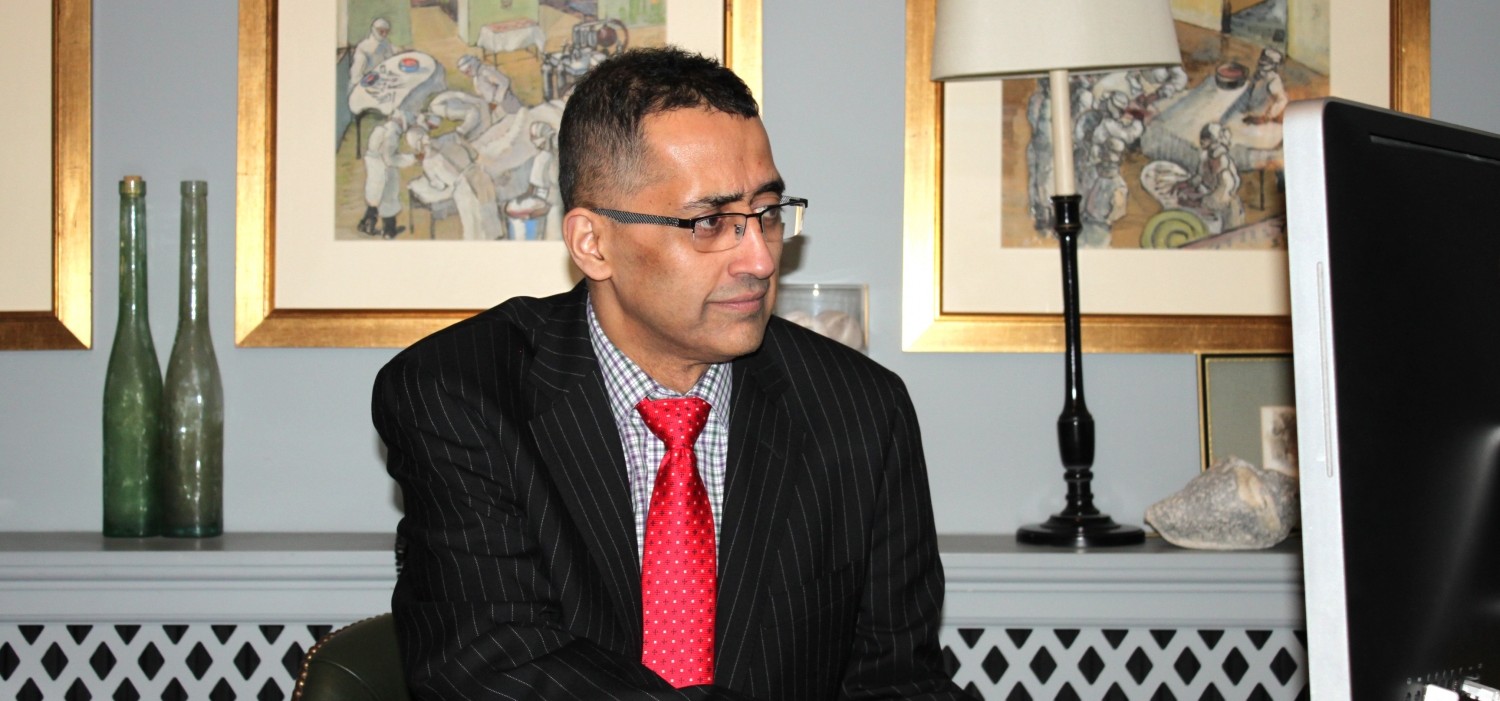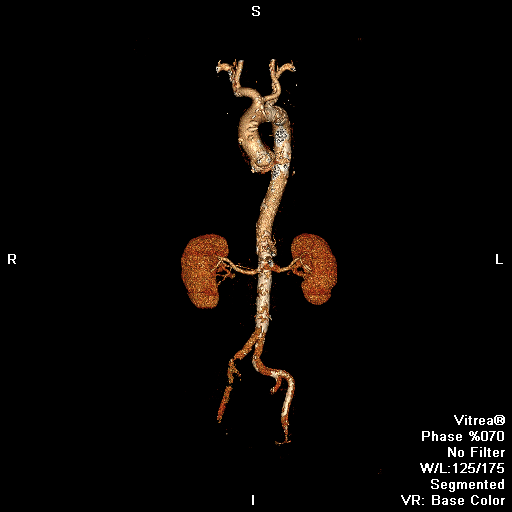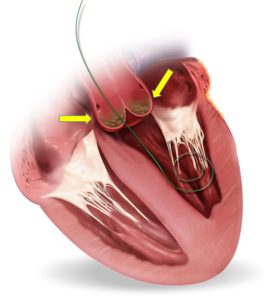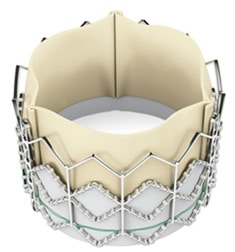Why Choose Dr. Iqbal Malik at London Cardiovascular Clinic?
When making a health decision, it is important to choose the right healthcare provider. We offer exceptional care and expertise for TAVI procedures at London Cardiovascular Clinic, a leading private healthcare provider in the UK.
Here’s what makes London Cardiovascular Clinic the preferred choice for private TAVI surgery in the UK:
- Recognised Expertise: Our team of highly skilled cardiologists, cardiac surgeons, and nurses specialises in TAVI procedures. Led by Dr Iqbal Malik, a leading Consultant Cardiologist, our experts bring extensive experience and a patient-centred approach to ensure the best possible outcomes.
- Personalised Care: We understand that every patient is unique. Our dedicated team provides tailored care, addressing your specific needs and concerns. From the initial consultation to post-operative care, we’ll be with you every step of the way.
- Comfortable and Convenient Experience: Your well-being is our top priority. Our clinic provides a relaxed and welcoming environment, making your stay as pleasant as possible. We also offer flexible appointment scheduling to accommodate your needs, making the experience less stressful.
Do I Need TAVI?
A private TAVI procedure is an alternative to open-heart surgery, often preferred for individuals considered high-risk for traditional surgical aortic valve replacement. If you suffer from Aortic Stenosis (AS) (also known as a narrowing of the aortic valve), you could be a prime candidate for TAVI. TAVI procedure is recommended if you:
- Have severe aortic stenosis, causing debilitating symptoms such as chest pain, shortness of breath, or fainting.
- Have not responded to other treatments for aortic stenosis.
- Are deemed high-risk for open-heart surgery due to age or other medical conditions.
In that case, you’ll need extensive investigation and then assessment by a multidisciplinary panel of specialists to see if your heart and body suit the procedure. They can assess the condition and determine the most appropriate individual treatment plan, considering your medical history, the severity of the condition, and overall health.
What Tests Will I Need Beforehand?
Before undergoing a TAVI procedure, your consultant will want to ensure you are fit and healthy enough for the operation. To do so, a series of tests will be conducted.
These tests help Dr. Malik understand your overall health and the specifics of your heart condition. This allows for a personalised treatment plan and ensures the best possible outcome.
The tests you might need include:
- Electrocardiogram (ECG): An ECG records your heart’s electrical activity and can help identify irregular heart rhythms.
- Echocardiogram: This ultrasound test creates images of your heart, allowing assessment of your heart’s structure, function, and severity of aortic valve stenosis.
- Pulmonary function test: The test measures how well your lungs are working and is essential to assessing if your respiratory status is fit for the procedure.
- Blood tests: Blood tests are essential for assessing overall health, checking kidney and liver function, and identifying potential bleeding disorders.
After reviewing the results of these tests, Dr. Malik will discuss the findings with you. We will talk about whether TAVI is the best course of action for your specific situation.
Below is an example of a CT scan of the whole aorta when planning for a TAVI surgery:
What is the TAVI Procedure?
The TAVI procedure, or transcatheter aortic valve implantation, is a minimally invasive keyhole surgery to replace your narrowed aortic valve. This valve is one of four in your heart and controls blood flow. When it’s narrowed—a condition called aortic stenosis—it can’t open fully. This restricts blood flow from your heart to the rest of your body.
With the TAVI procedure, instead of opening your chest, the doctor inserts a catheter, a thin, flexible tube, usually through an artery in your groin. The new valve, crimped inside this catheter, is guided through the blood vessels to your heart. Once in place, the new valve expands and takes over the function of your old, damaged valve.
Take a look at Dr. Iqbal Malik’s explanation of the four heart valves, Aortic Stenosis (AS), and Transcatheter Aortic Valve Implantation (TAVI) procedure:
What Does the TAVI Procedure Involve?
The specific approach used during a TAVI procedure can vary depending on the patient’s anatomy and the preference of the cardiac team. The standard methods include:
- Transfemoral Approach (via the leg): This is the most common approach, where the catheter is inserted through the femoral artery in the groin, usually under local anaesthetic. This is the easiest route if your blood vessels are big enough, as the artery has a relatively direct path to the heart.
- Transaxillary Approach (via the shoulder): This approach involves accessing the axillary artery, often under local anaesthetic. The procedure is more uncomfortable than the transfemoral one.
- Transcaval Approach (via a large vein): This route crosses from a vein to an artery deep in the abdomen, often done under local anaesthetic.
- Transaortic Approach (via the chest): In this approach, a small incision is made between the ribs to access the heart’s apex under general anaesthetic. This approach is considered when the femoral artery is too narrow or blocked. Still quite invasive, this route is rarely done and chosen only if other options aren’t suitable.
Your cardiologist and surgeon carefully choose the approach, considering individual circumstances and ensuring the safest and most effective route for transcatheter aortic valve replacement. Please remember that none of the approaches are as invasive as open heart surgery.
Below, you can see the yellow arrows showing the diseased aortic valve and the Edwards Sapien Valve (one of the TAVI valves):
Preparing for TAVI surgery at London Cardiovascular Clinic
Getting Here
Dr Malik primarily sees patients at One Welbeck Heart Health, 1 Welbeck St, London W1G 0AR. He can also accommodate appointments at other locations upon request.
Your Consultations
Before your TAVI surgery, the team at the London Cardiovascular Clinic will provide you with clear instructions on how to prepare for it. This may include dietary adjustments and guidance on managing your medications. Additionally, a series of tests will be performed, including the CT scan and angiogram (ensuring that your coronary arteries are clear).
Note: It is helpful to bring a letter from your General Practitioner, prescription sheets, old letters, and any previous CDs of investigations (e.g., angiograms).
Treatment
Based on your test results, the consultant will advise you on:
- Individual care and treatment plans
- Anaesthetic options
- Potential individual complications
Don’t hesitate to discuss any concerns or questions with the medical staff dedicated to supporting you throughout your healthcare journey.
To put your mind at ease, watch a video of Dr. Malik performing a TAVI surgery—he has been doing them for a long time! :
TAVI/TAVR demonstrated by Dr Iqbal Malik with the Edwards S3 system
TAVI Procedure Recovery: What to Expect
After your TAVI procedure, you’ll be closely monitored in a recovery area as you wake up from the anaesthesia. The medical team will monitor your vital signs to ensure your safety. The length of your hospital stay varies depending on your overall fitness, the access route used, and the need for additional rehabilitation. Most patients stay in the hospital for a few days, typically from same-day discharge to 3-4 days.
You’ll gradually begin moving around during your hospital stay to help your body recover and regain strength. You should generally be able to walk by the end of the first day, with paracetamol managing any pain from the groin cuts, which usually don’t require sutures. The medical team will guide you through appropriate exercises and activities to support your recovery.
Once you are discharged, you’ll receive detailed instructions on caring for yourself at home, including wound care, medication, diet, and physical activity information. Take it easy for the first week and avoid heavy exercise for two weeks. Additionally, you are legally not allowed to drive for four weeks. Follow-up appointments will be scheduled to monitor your progress and address any concerns.
Book your consultation
Send us an e-mail or complete our simple contact form to arrange your consultation with London’s top cardiologist consultant, Dr Iqbal Malik.
Frequently Asked Questions
Are There Any Risks of TAVI Surgery?
Like any medical procedure, TAVI surgery involves potential risks and benefits. Complications are possible, as only the higher-risk patients get this treatment.
Some potential TAVI risks include:
- Blood vessels: complications at the vascular access site (e.g. pain, bleeding, bruising, and blockage).
- Disruption of the standard electrical conduction system of the heart may require treatment with a pacemaker.
- Aortic regurgitation: leaking around the new aortic valve that allows some blood to flow in the reverse direction.
- Stroke—debris can cause a stroke, but be assured that Dr Malik is currently researching how to reduce the risk further.
While these risks exist, it’s essential to remember that TAVI is generally a safe and effective procedure. Your medical team will take every precaution to minimise these complications and will also discuss individual risk factors with you.
Despite the possible risks, TAVI is a life-saving treatment with dramatically improved quality of life.
How Much Does a TAVI Operation Cost in the UK?
Insurance
Most private medical insurance policies cover private TAVI surgery. To speed things up, please contact your insurance company before your appointment to obtain your pre-authorisation code. This will help you understand the specifics of what your policy covers and any potential out-of-pocket expenses related to the cost of TAVI surgery in the UK.
Self-funding
If you are self-funding your procedure, our price list is available upon request and on display in our waiting area. For any estimation of costs, including the price for private TAVI surgery in the UK, please contact our office. We can provide detailed information and answer any questions you may have about the financial aspects of your TAVI surgery.
Which Hospital is Best for Aortic Valve Replacement in the UK?
Finding the best hospital for aortic valve replacement in the UK involves researching and considering your needs. Here are a few factors to help guide your choice:
- Hospital Experience: Look for hospitals with dedicated cardiac teams and a high volume of aortic valve replacements. Extensive experience often translates to smoother procedures and improved outcomes.
- Post-Operative Care: A comprehensive post-operative care programme is essential for a successful recovery. Learn about the hospital’s cardiac rehabilitation programmes and support services.
- Patient Satisfaction: Reading patient testimonials and online reviews can offer insights into the overall patient experience at different hospitals.
To illustrate, Dr Malik and our team specialise in TAVI procedures with a patient-centred approach at the London Cardiovascular Clinic. We offer personalised care from consultation to recovery, prioritising your well-being in a welcoming environment. As a result, LCC combines recognised expertise with exceptional care.
What are the Benefits of a TAVI Aortic Valve?
One of the most significant benefits of TAVI is the reduced invasiveness of the procedure.
Additional benefits of the TAVI operation include:
- Shorter Hospital Stay: Patients undergoing TAVI typically have a shorter hospital stay than those undergoing traditional surgery, leading to quicker overall recovery.
- Faster Return to Normal Activities: TAVI’s minimally invasive nature allows patients to resume their normal activities sooner, improving their quality of life.
- Improved Symptoms: Many patients experience immediate relief from the symptoms of aortic stenosis, such as shortness of breath and chest pain, following the procedure.
- Reduced Risk of Complications: TAVI is particularly beneficial for high-risk patients for traditional open-heart surgery due to age or other medical conditions.







